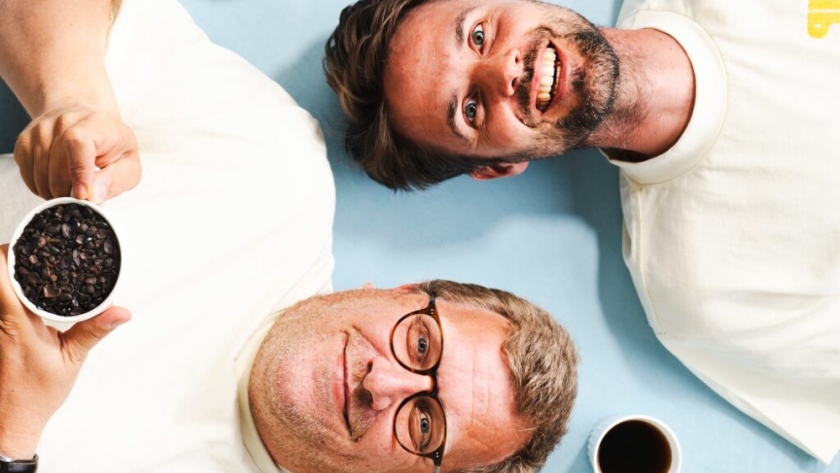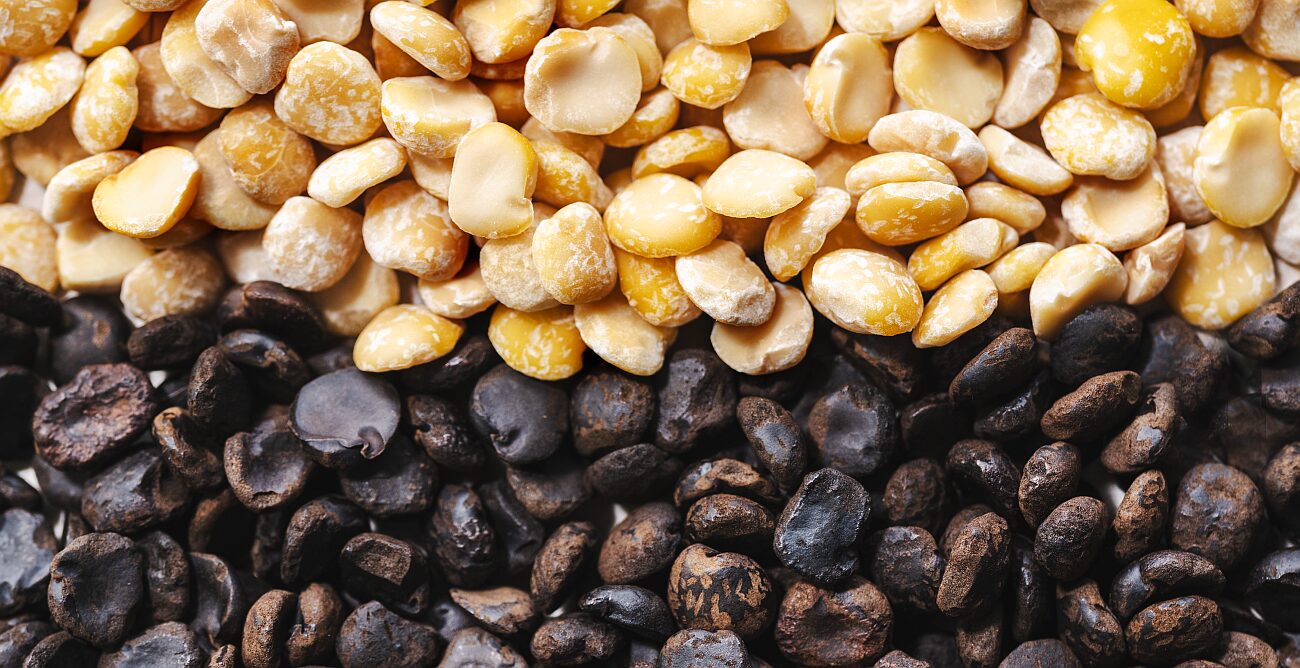
By Agroempresario.com
Belgian startup Koppie is stepping into the alternative coffee scene with a groundbreaking technology that transforms pulses into coffee-like “beans” using a patent-pending fermentation and roasting process. Founded by former Danone/Alpro marketer Daan Raemdonck and bioscience engineer Dr. Pascal Mertens, Koppie aims to offer a sustainable and scalable solution to the coffee industry’s growing challenges of supply volatility and price inflation.
Coffee, one of the world’s most beloved beverages, faces increasing risks due to climate change and unstable markets. Recent analyses indicate that by 2050, the land suitable for growing Arabica coffee—the most popular species—could shrink by 50%, as rising temperatures and changing weather patterns disrupt traditional growing regions. The low genetic diversity of Arabica further exacerbates its vulnerability to pests and environmental stressors.
Meanwhile, global demand for coffee is rising by more than 2% annually, driven by expanding markets in countries such as China and India. This increase in demand coincides with expected declines in yield, causing prices to soar. “With yields under pressure and prices rising, we believe novel and hybrid solutions will be essential for coffee companies looking to navigate volatile supply chains,” says Koppie co-founder Daan Raemdonck.
Koppie differentiates itself by focusing on a single-ingredient approach: fermenting and roasting pulses such as chickpeas and yellow peas to produce beans that can be ground and brewed just like traditional coffee. This contrasts with other alt-coffee startups that often use blends of various ingredients.
The patent-pending fermentation process is key to Koppie’s innovation. “We chose chickpea and yellow pea because they’re abundantly available locally, but we are pulse agnostic. The heavy lifting happens in how our microbial strains work together, the conditions, and the sequence in which they operate,” explains Raemdonck.
By leveraging existing coffee roasting, grinding, and brewing infrastructure, Koppie offers a capex-light model that appeals to industry players looking for scalable solutions without heavy upfront investment.
Independent coffee sommeliers, known as Q-graders, have awarded Koppie’s pulse-based coffee a score of 70 out of 100, comparable to many commercial-grade coffees. According to the startup, tasting notes reveal a strong resemblance to traditional coffee, featuring higher sweetness, muted bitterness, and no off-flavors.
This quality benchmark is a promising sign for Koppie’s future growth. “We are confident that further refinement will raise our product’s score closer to 80, reaching specialty coffee grade,” says Raemdonck.

Unlike some alternative coffee companies that focus on direct consumer branding, Koppie is initially targeting B2B clients—coffee roasters and retailers—in Europe. The rationale is simple: most consumers are unaware of the existential threat facing their daily cup of coffee, making it difficult to build a consumer brand around this challenge.
In contrast, established coffee companies are acutely aware of supply chain risks and are actively exploring alternatives. Koppie is already in talks with several European partners and plans to launch commercially by Q1 2026.
Raemdonck points out that when Koppie’s beans are blended with traditional coffee, the difference is virtually indistinguishable to consumers. “In some ways, our product is more similar to Arabica than Robusta, especially in flavor profile.”
This opens marketing options for coffee companies, from simply listing “roasted fermented chickpea” on labels to promoting benefits like lower caffeine or acidity. For companies selling decaffeinated coffee, Koppie’s naturally caffeine-free beans could also represent cost savings by eliminating decaffeination processes.
Koppie recently secured a significant pre-seed funding round led by Nucleus Capital, with participation from Mudcake, Rockstart, and angel investors. Maximilian Schwarz, partner at Nucleus Capital, notes: “We firmly believe that novel and hybrid solutions are essential to maintaining the food rituals and experiences we cherish, so backing Koppie felt natural.”
Erik Byrenius, partner at Mudcake, adds: “Koppie combines excellent taste, brewing ritual, and versatility in one ingredient, which is unique among alternative coffee companies. With the global coffee supply chain under increasing pressure, their approach offers a timely and scalable alternative.”
With new funding, Koppie aims to scale production from kilos to tons by the end of the year and conduct in-market testing with one or two customers. Raemdonck shares that the company has identified several viable industrial pathways to optimize manufacturing.
Coffee companies are divided into three groups regarding alternatives: those unaware or uninterested, those open to testing, and those already investing heavily in alternative coffee R&D.
“The enthusiasm from specialty coffee bars and professionals, who can’t tell our product apart from coffee of a specific region, motivates us to keep improving,” says Raemdonck.
The coffee market’s current volatility and high prices have heightened awareness among producers and retailers. While prices have softened slightly this year, they remain at historic highs.
Koppie’s innovation represents a proactive step toward futureproofing the supply chain by blending sustainability, quality, and economic viability. As consumer preferences evolve, the potential to market hybrid coffees that combine traditional beans with pulse-based alternatives could redefine the industry.
